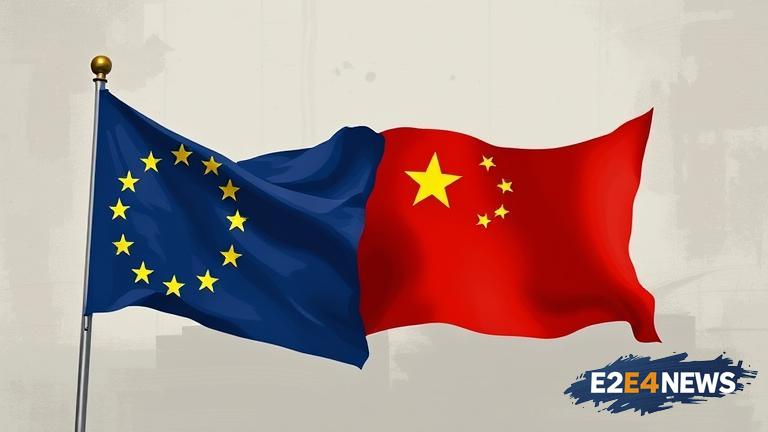The European Union is poised to take a significant step in its relations with China, as it considers imposing sanctions on the Asian giant. This move comes amid rising tensions between the two economic powerhouses, with the EU citing concerns over human rights, trade practices, and security issues. The potential sanctions are expected to target specific Chinese individuals and entities, although the details of the measures have not been disclosed. The EU’s decision to pursue sanctions is seen as a significant escalation of the tensions between the two sides, which have been simmering for several years. The EU has long been critical of China’s human rights record, particularly in the western region of Xinjiang, where millions of Uighur Muslims have been detained in internment camps. China has denied any wrongdoing, but the EU has been vocal in its condemnation of the situation. In addition to human rights concerns, the EU has also been critical of China’s trade practices, which it sees as unfair and damaging to European businesses. The EU has been pushing for China to open up its markets and to provide a level playing field for European companies. However, China has been resistant to these demands, leading to a growing sense of frustration among EU leaders. The potential sanctions are seen as a way for the EU to exert pressure on China to change its behavior. The EU has a range of tools at its disposal, including trade restrictions, asset freezes, and travel bans. The sanctions could also have a significant impact on China’s economy, which is heavily reliant on trade with the EU. China has already warned the EU against imposing sanctions, saying that it would retaliate with its own measures. The situation is complex and multifaceted, with both sides having legitimate concerns and grievances. The EU is also seeking to coordinate its response with other like-minded countries, including the United States. The US has been critical of China’s human rights record and has imposed its own sanctions on Chinese individuals and entities. The EU’s decision to pursue sanctions is seen as a significant shift in its approach to China, which has traditionally been focused on engagement and cooperation. However, the EU has come to realize that its approach has not yielded the desired results, and that a more robust approach is needed. The potential sanctions are expected to be discussed at an upcoming meeting of EU leaders, where a final decision is expected to be made. The situation is being closely watched by businesses and investors, who are concerned about the potential impact on trade and investment. The EU’s decision to pursue sanctions is also seen as a test of its resolve and its ability to stand up to China. The EU has a long history of promoting human rights and the rule of law, and its decision to pursue sanctions is seen as a reflection of its commitment to these values. The situation is likely to continue to evolve in the coming weeks and months, with both sides engaging in a war of words and diplomatic maneuvering. The EU’s decision to pursue sanctions is a significant development in the relations between the two sides, and it remains to be seen how China will respond. The EU is also seeking to promote its values and interests in the region, and the potential sanctions are seen as a way of doing so. The situation is complex and multifaceted, with both sides having legitimate concerns and grievances. The EU’s decision to pursue sanctions is seen as a significant escalation of the tensions between the two sides, and it remains to be seen how the situation will unfold.





